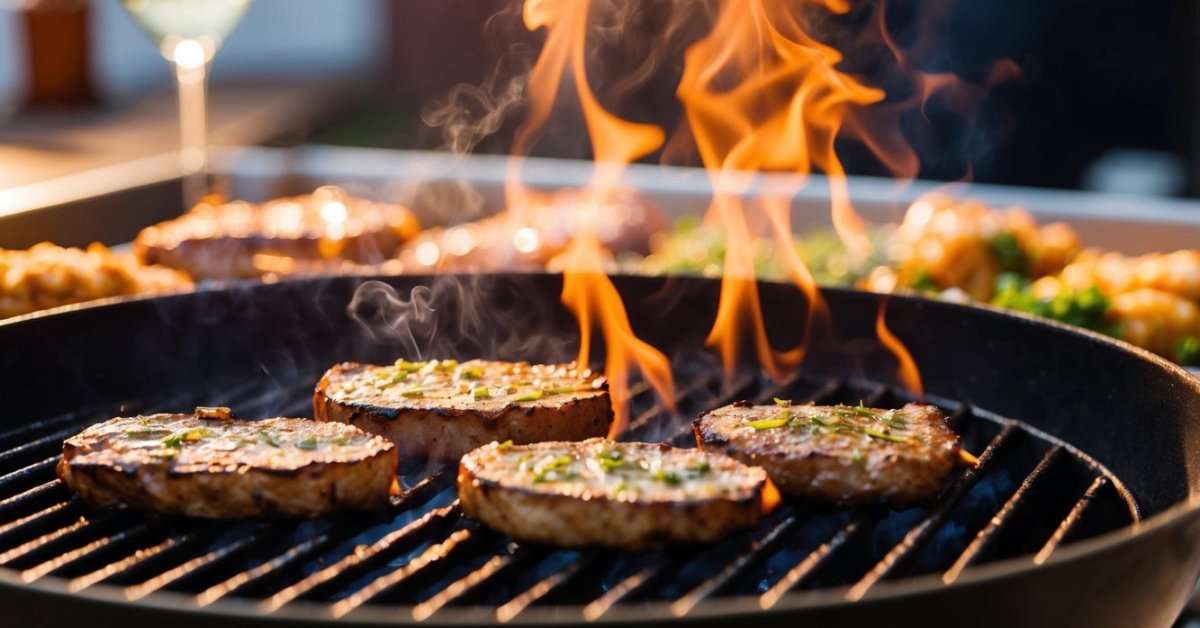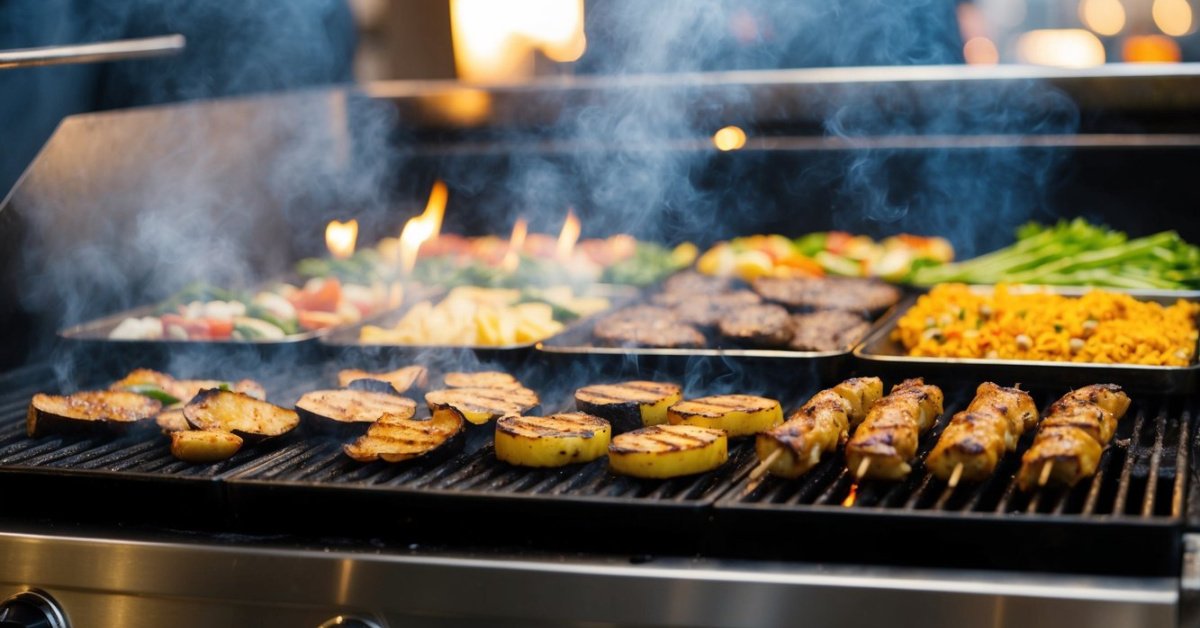Grilling 101: How to Stop a Propane Tank from Leaking Like a Pro
If you’re new to grilling and barbecues, knowing how to stop a propane tank from leaking is a crucial skill to master. Propane tanks can leak for a number of reasons, but with the right preparation and knowledge, you can prevent leaks before they happen and detect them early if they do occur.

In this article, we’ll cover the essentials of propane tank leaks, including how to detect them and what steps to take if you find one. Plus, we’ll share preventative measures you can take to avoid leaks altogether and safe handling and storage tips for your propane tank.
So grab a cold one and get ready to learn the tips and tricks from the guy next door who knows how to grill like a pro. Keep reading to become an expert in stopping propane tank leaks!
Understanding propane tank leaks and their causes
As grilling enthusiasts, we all know the importance of propane tanks in achieving that perfect sear on our steaks and burgers. However, it’s also important to understand the potential risks associated with propane tank leaks.
Propane tank leaks can occur for a variety of reasons, such as a faulty valve or regulator, an overfilled tank or damage to the tank itself. It’s crucial for new grillers to understand these causes in order to prevent accidents from occurring.
One common cause of leaks is overfilling your propane tank. When filling your propane tank at a refill station, it’s important not to fill it past 80% capacity. This allows room for expansion and prevents excess pressure buildup which can lead to dangerous leaks.
Another factor contributing towards leaking tanks is using damaged equipment such as hoses that have cracks or tears in them which may result due aging or wear-and-tear overtime . Regularly inspecting all parts of your grilling setup will help you identify any issues before they become serious problems.
In summary: Understanding how and why propane tanks leak is essential knowledge every new griller should possess alongside keeping their equipment well maintained because letting small issues go unnoticed could lead up-to disastrous consequences.. By taking proactive measures like regularly checking hoses and valves , avoiding overfilling fuel containers ,and replacing worn-out components when necessary one can easily avoid accidents caused by leaking gas during barbecues!
How do I detect a propane tank leak?
As a grilling enthusiast, one of the most important things you need to know is how to detect a propane tank leak. Not only can this prevent accidents and injuries, but it can also save you money by preserving your fuel supply.
The first thing you should do is perform a visual inspection of your tank. Look for any signs of damage or wear and tear such as dents, rusting or cracks in the metal. This could indicate that the tank has been damaged which may lead to leaks.
Next up, check all connections between hoses and valves making sure there are no loose fittings or worn out seals that may cause gas leakage. Use soap water solution on these areas because when bubbles form on these parts it indicates leaks.
Lastly, if despite your efforts an odor still persists then immediately shut off all burners including those in other appliances fueled by propane and evacuate the area leaving doors open for ventilation before calling emergency services from safety distance away from building.
Remember: Safety always comes first when dealing with propane tanks so don’t take any chances if you suspect something isn’t right!
Steps to take when you discover a propane tank leak
Discovering a propane tank leak during a grilling session can be a frightening experience, especially for those who are new to the world of barbecuing. However, it’s important to remain calm and take immediate action to stop the leak and prevent any potential accidents.
The first step is to turn off the gas valve on your propane tank immediately. This will stop any further gas from escaping and reduce the risk of fire or explosion.
Next, carefully disconnect your grill from the propane tank by unscrewing it in a counterclockwise direction. Make sure that you do this slowly and gently so as not to cause any additional damage or create sparks.
Once you have safely disconnected your grill from your propane tank, move both items away from any potential sources of ignition such as open flames or electrical appliances. Never attempt to light up another match or lighter near where there might still be traces of leaked gas!
After ensuring that there is no longer an active flame source nearby, inspect both the grill itself and all hoses connected with care for visible signs of damage such as cracks or holes in rubber pieces like seals which may need replacement if they are damaged beyond repair.
If everything looks okay then go ahead with reattaching everything back together again after waiting for some time since turning off valves alone may not always eliminate all residual gases completely within pipes leading into tanks leaving them susceptible towards igniting upon future use until fully dissipated over time through natural means such as heat transfer via ambient air etcetera but if anything seems out-of-place take action immediately before proceeding further!

Preventive measures to avoid propane tank leaks
« how much electricity does a pellet grill use
how to toast hamburger buns »
As a seasoned grilling enthusiast, it’s important to know how to prevent propane tank leaks before they become a major safety hazard. Here are some preventative measures that can help you avoid any potential accidents.
First and foremost, always inspect your propane tank for any signs of damage or wear and tear. This includes checking the valves, fittings, hoses and regulator for cracks or dents. If you notice anything out of the ordinary, do not attempt to use the tank until it has been inspected by a certified professional.
Another key preventative measure is ensuring proper storage of your propane tanks when they are not in use. Keep them in an upright position on a flat surface away from direct sunlight or extreme heat sources such as open flames or hot surfaces.
Additionally, make sure to never overfill your propane tanks beyond their recommended capacity levels as this can increase pressure within the tank leading to potential leaks.
Lastly but most importantly always keep an eye on gas smells near where you store them; if there’s any unusual smell don’t hesitate turn off everything immediately call professionals without wasting time because with gases like these even smallest amount can be dangerous enough!
By following these simple yet crucial tips for preventing propane tank leaks while grilling we can all enjoy our favorite barbecues safely without worrying about unwanted accidents.
Safely handle and store propane tanks.
Grilling and barbecuing are beloved pastimes for many, but it’s important to remember that propane tanks can pose a serious safety risk if not handled and stored properly. As someone who has become an expert at grilling through trial and error, I know firsthand the importance of taking precautions when using propane tanks.
First off, always make sure your propane tank is in good condition before use. This means inspecting it regularly for leaks or other damage. If you notice anything out of the ordinary, don’t hesitate to replace the tank immediately.
When storing your tank, ensure that it is kept in a cool and dry place away from any heat sources or open flames. Never store your tank indoors as this can create a fire hazard.
Additionally, make sure you always use caution when connecting or disconnecting your grill from the propane tank. Always turn off both valves before doing so to prevent gas leaks which can be harmful to both humans and pets alike.

Finally, never leave a lit grill unattended even for just a few minutes as this creates an unnecessary risk of fire hazards which could easily get out of control.
In summary: whether you’re new to grilling or consider yourself an expert like me – safety should always come first! By following these simple tips on proper handling and storage techniques for propane tanks – we all have more peace-of-mind knowing our families will be safe while we enjoy our outdoor cooking experiences together!
Conclusion
Now that you’re armed with the knowledge of how to prevent and handle propane tank leaks, it’s time for you to get out there and do some grilling! Be sure not only to use your new knowledge when handling propane tanks but also have fun–that’s what grilling is all about. Thanks for reading my blog on understanding, detecting, and preventing Leaks in Propane Tanks. Go now, go forth with confidence knowing all about this important topic – happy grilling!














